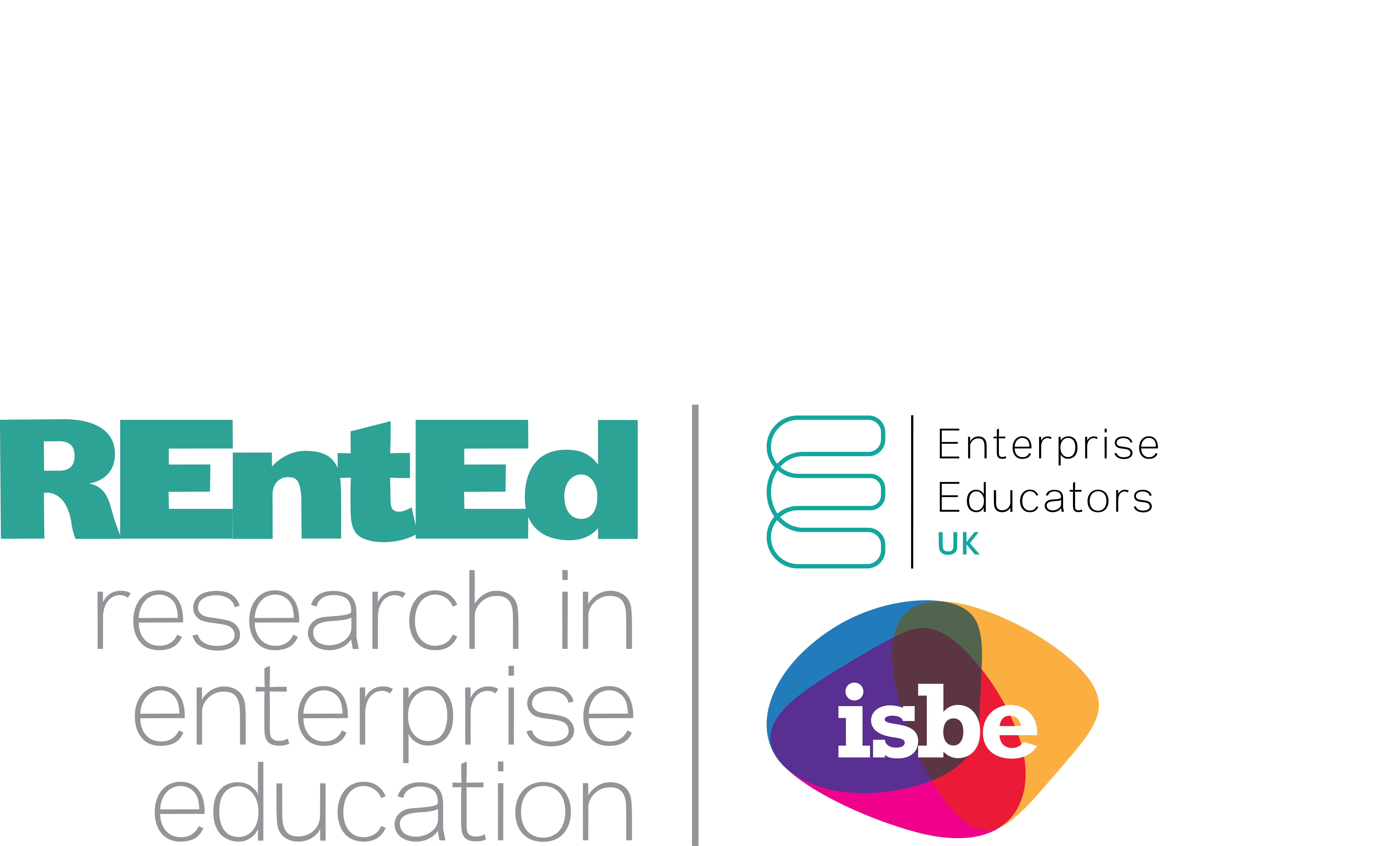2:00 pm - 4:15 pm 17/11/2021


Wednesday November 17th, 2pm to 4.15pm – Online
** Slides available to download below **
Summary
This EEUK Enterprise Exchange event provided an opportunity for attendees to hear about and learn from the findings of three research projects funded by EEUK and undertaken by our member universities and colleges.
EEUK’s Enterprise Education and Research Project Fund (EERPF) funds projects to (i) support the creation and evaluation of enterprise education materials and resources and (ii) facilitate impactful and / or experimental research which adds to our understanding of enterprise education and addresses the needs of the enterprise education community.
The EERPF projects shared through presentation and discussion were:
Harnessing personal values and motivations to increase the effectiveness and inclusiveness of social enterprise education – University of the Arts London and London South Bank University
Students from under-represented groups have traditionally experienced barriers in accessing enterprise opportunities, support and funding (Osho,https://eeuk-menu.instawp.xyz/widening-participation-and-ented/). These students can, at times, find it hard to identify with the language of enterprise or the journeys of entrepreneurs: this can lead to a lack of engagement in entrepreneurial education. This research sought to identify and address barriers to engagement from students from underrepresented groups. Through co-creating activities with students from two universities, the team developed a toolkit that reframes social enterprise education, with a focus on exploring the links between personal values, motivations, social enterprise and community impact.
Exploring students’ entrepreneurial identity formation: a longitudinal approach – Plymouth Marjon University and Coventry University
E-surveys and reflective diaries from a sample of UK HE students at two universities provided data to examine the process of entrepreneurial identity formation and its relationship to entrepreneurial intentions. Calls for more research on entrepreneurial identity formation have been voiced (Hoang and Gimeno, 2015), not least because identity offers a construct to explain entrepreneurial behaviour as individuals strive for congruence between their entrepreneurial identity and entrepreneurship (Stets and Burke, 2000; Cardon et al., 2009). This study sought how the development of an entrepreneurial identified over time helped explain changes in entrepreneurial intentions.
Identifying and Mapping Threshold Concepts of Entrepreneurship Across University Entrepreneurship Education Programmes – University of Bristol and Newcastle University
This project built on Dr Lucy Hatt’s PhD research using the threshold concept framework to enhance entrepreneurship curricula in higher education. It prototypes a transactional curriculum inquiry (TCI) approach to identify local threshold concepts with staff from the University of Bristol’s Centre for Innovation and Entrepreneurship (CFIE) as part of a programme review and an evaluation of student understanding. Combining this process and the CFIE Team’s Design Thinking expertise, a toolkit was developed for EEUK members to develop and evaluate their own enterprise education curricula informed by the threshold concept framework, concept mapping and a TCI approach.
Chaired by:
- Dr Richard Tunstall, Director of EEUK
Speakers:
- Dr Sarah Preedy, Plymouth University (formerly Plymouth Marjon University
- Dr Peter McLuskie, Keele University (formerly Coventry University)
- Tessa Read, University of the Arts London
- Shani-Louise Osei, University of the Arts London
- Syeda Rahimunnessa, London South Bank University
- Dave Jarman, University of Bristol
- Dr Lucy Hatt, Newcastle University
Slides
Osei UAL, Read UAL, Rahimunnessa LSBU-converted
Preedy Plymouth, McLuskie Keele-converted
Hatt Newcastle, Jarman Bristol-converted
Attendee details
Bookings are closed for this event.
